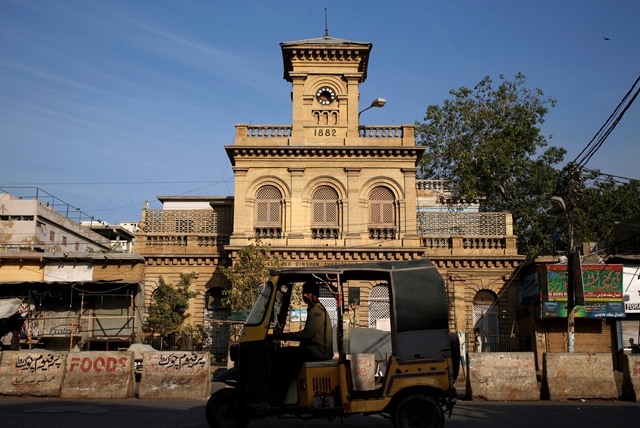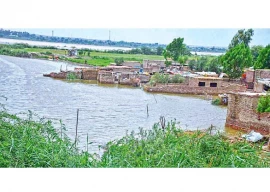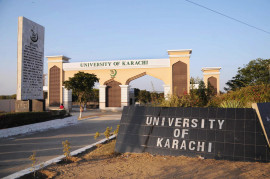
Sadly, however, that is not the case in Pakistan because the schools teaching architecture across the country have drifted away from the local culture and traditions and are highly influenced by foreign architecture. This was the finding of the latest study conducted at the NED University of Engineering and Technology.
The research also found that students attending such schools in the country are seldom exposed to practical work or knowledge because of which young graduates often lack the skills required to come up with unique and culturally-rich designs.
The research has been carried out by Dr Yasira Naeem Pasha, the head of the Architecture and Planning Department at Dawood University of Engineering and Technology (DUET). She completed her thesis in the subject under the supervision of Dr Noman Ahmed, the dean of NED University.
Holocaust architect's grave dug up in Berlin
Per the study, the syllabus which is currently being taught in Pakistani varsities for architectural education has not been updated or revised since 2013. Moreover, courses taught to students are purely theoretical and those graduating from the programmes are not required to look for internships so that they could go out in the field and learn about the practicalities of the profession.
Speaking to The Express Tribune, Dr Pasha said that during her research, she thoroughly studied the architecture syllabus taught at graduation level in public and private universities of various cities in Pakistan. The results of her study have been nothing short of disappointing.
“Apart from carrying out an in-depth study of the present curriculum in architecture schools, I also extensively talked to teachers and students,” Dr Pasha said, adding that she included all the relevant Pakistani varsities in her research, including the Indus Valley School of Art and Architecture, DUET, the NED University of Engineering and Technology, Beaconhouse National University, National College of Art, University of Engineering and Technology (UET) Lahore, COMSATS Islamabad and UET Abbottabad.
“The topics included in the syllabuses of different public and private varsities prove that they are either devoid of the cultural history of Pakistan or the subject is very superficially included. The culture, customs and rituals of Pakistan are often confined to the Muslim History of Architecture,” she said.
She explained that different tangible and intangible attributes of culture must be included in the syllabus because the absence of these traits has affected the contemporary architectural structures of Pakistan, which are entirely influenced by foreign elements.
“It is very sad that Pakistani architecture students have no knowledge about the local culture and history and how it should reflect in the structures they design,” she shared. Dr Pasha also said that architecture professionals do not bring anything new to the table when they get projects to work on and end up agreeing with what their clients demand.
Architectural heritage of Anarkali Bazaar reflects Mughal, British eras
Moreover, she pointed out that there is a huge gap between the practical aspects of the field and what is currently being taught in universities.
“When students enter the profession after graduation, they are unable to utilise the knowledge that they have gained in universities. Similarly, teachers have no connection with the professional field so they also fail to prepare students for the occupation,” she stated.
In consultation with different academics and professionals, Dr Pasha has recently designed a revised syllabus for the DUET, which will soon be introduced. According to this new syllabus, internships will be made mandatory for students. The new syllabus will replace the one designed by the Higher Education Commission in 2013.
“Internships are necessary because they expose students to the ongoing trends in the market,” she said. “We are hoping that the introduction of the new syllabus, which is focused on our local culture, will bring about a positive change in the industry.”
Published in The Express Tribune, December 18th, 2019.


1730965998-0/BeFunky-collage-(27)1730965998-0-165x106.webp)
1731933289-0/BeFunky-collage-(68)1731933289-0-165x106.webp)













COMMENTS
Comments are moderated and generally will be posted if they are on-topic and not abusive.
For more information, please see our Comments FAQ